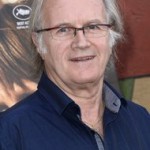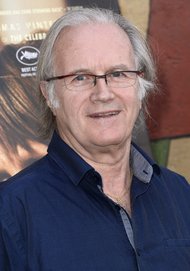The surprise stems not from the subject matter of “The Nightingale,” a sweet family drama about an old man and his haughty granddaughter on a long, mishap-ridden journey from Beijing to his native village in the far south. Rather it is the background of Mr. Muyl, who is French, not Chinese, and was learning Mandarin as he worked on the film.
FTA can act as your Chinese Celebrity Agency and help you contact book any Chinese Celebrity
“The Nightingale” has a clear kinship to Mr. Muyl’s best-known film, “The Butterfly,” which was made in 2002 in French and is also about the relationship between an elderly man and a young girl. That movie, though never formally released in China, was available there on pirated DVDs and was widely seen, including by Li Baotian, the popular Chinese actor who plays the grandfather in “The Nightingale.”
FTA can provide funding for overseas projects with A-list celebrities attached
But making “The Nightingale,” a Franco-Chinese co-production, was not easy. “It was difficult to find the money because the Chinese market is so tough,” Mr. Muyl, 61, said. “The younger audience, they go to see action movies, 3D movies, and this kind of movie is very artistic.”
FTA is looking to option scripts for Chinese production companies
Mr. Muyl has recently been in Los Angeles to talk up his film with Academy members — on his own dime, he said, since “we didn’t get any money from any country, any government” for production or promotion. From there, he spoke about the pluses and minuses of working in China. Here are excerpts from the conversation:
Western co-productions with China are rare. How did yours come about?
In 2009 I went to a film festival in Beijing to present a movie, and I met two young producers; she is Chinese, and her husband is French. They wanted to make a Chinese movie, but with a non-Chinese director. At first I said no, I can’t go on this project because I don’t know China, I’m only able to say one word in Mandarin, I don’t know Chinese actors and technicians. It’s a bad idea.
What made you change your mind?
Some months later, I thought about that, and I said “O.K., in your life you have maybe two times when you can go do some crazy things. One is when you are very young, and the other is when you are getting old.” I am more than 60, so I said, “It is time for me to do something that is not reasonable.”
As a newcomer to China, how did you find a story and write a script?
At the beginning we had the idea of a remake of “The Butterfly.” But we abandoned this idea very fast because I didn’t want to make the same movie twice. I wanted to find something very specific for China. In the end I worked with a Chinese screenwriter because everything is different there, every gesture, the psychology. I needed to forget what I was as a Frenchman and do my best to try to become a Chinese director.
In “The Nightingale,” the conflicts among family members, especially between generations, were more muted than would be the case in a French or American film.
This was maybe the most difficult part of the screenplay. I spent hours and days discussing that, because I said, “In France, when we have a conflict between two people, between a father and a son, we shout, we can fight.” In China that is impossible. It’s a silent conflict.
Another thing that differentiates this film from “The Butterfly” is that in the earlier film, it was the older character who was cranky and the younger one who was sympathetic. In this one you have reversed that and made the little girl very spoiled.
Exactly. [Laughs] Both [are] about an old man and a young girl. But it’s not the same story or subject, because in “The Butterfly” the theme is abandonment. The little girl is alone: her mother doesn’t care about her. This is a different story, but in “The Butterfly” the girl is very sweet, and in this movie it is the opposite.
I’m curious about the practical problems of a shooting in a part of China that is largely rural.
If there is a big difficulty in China, it is organization. Actually, non-organization. When you need something, the answer is “no problem.” You don’t get it, but it’s no problem. They are very bad organizationally, but when you know that, you can deal with it and improvise, because when, as a director, I decide “Let’s go there” or “Let’s shoot this scene,” they are very fast, very quick. There are a lot of people, and a few minutes later everything is ready. So yes, bad organization, but very efficient in speed.
We hear a lot about script approval and censorship of films in China. Did you confront that?
I knew the rules when the producers told me about coming to China to make a movie. I had to give over the screenplay for reading before the shooting, and we had to show the movie at the end of the post-production. We don’t know who is on the committee, we don’t know the people, but they can say what they want. They can say “No” or “We don’t want this scene.” You don’t have the right to ask why. Some Chinese directors say “Why?,” but they never get an answer. My movie didn’t have this kind of difficulty. In a way it is a simple movie; there is no delicate subject. I don’t talk about politics.
Were you surprised your film ended up being China’s submission for the Oscar?
Yes, yes. Some months before that, I spoke with a friend in Beijing who works in cinema, and I said, “Maybe we can do something to propose this movie for the Oscar.” The answer was “No, it’s impossible. Forget it. They will never choose a movie made by a non-Chinese director.” So I forgot about that. When it happened, everyone was surprised, not just me.
Why do you think they chose your film?
They had the possibility to choose the Zhang Yimou movie, and they had the possibility to choose Diao Yinan’s “Black Coal, Thin Ice.” But I think they wanted to try something else because Zhang Yimou already went eight times to the Oscar competition, and also I think they are not so crazy about showing a movie about the Cultural Revolution.
In addition, I think they wanted to send an international message. And that message is: This movie is a co-production, and we are able to make co-productions with you.
So what are your aspirations for this film in the Oscar competition?
This is already a small miracle, to have been chosen by China to go into the Oscar race. So if a small miracle, then why not a big miracle?
 Source: https://carpetbagger.blogs.nytimes.com/2014/12/15/china-submits-an-unexpected-contender-and-surprises-even-the-director/?_r=0
Celebrity booking agency in China & Overseas film consulting services
Mr. Muyl surprise China oscar contender, Chinese Celebrity booking, Hollywood Celebrity in China, Hollywood agent in China, Investment, scripts, consulting, 外模, 外籍演员, 外国艺人
Source: https://carpetbagger.blogs.nytimes.com/2014/12/15/china-submits-an-unexpected-contender-and-surprises-even-the-director/?_r=0
Celebrity booking agency in China & Overseas film consulting services
Mr. Muyl surprise China oscar contender, Chinese Celebrity booking, Hollywood Celebrity in China, Hollywood agent in China, Investment, scripts, consulting, 外模, 外籍演员, 外国艺人
